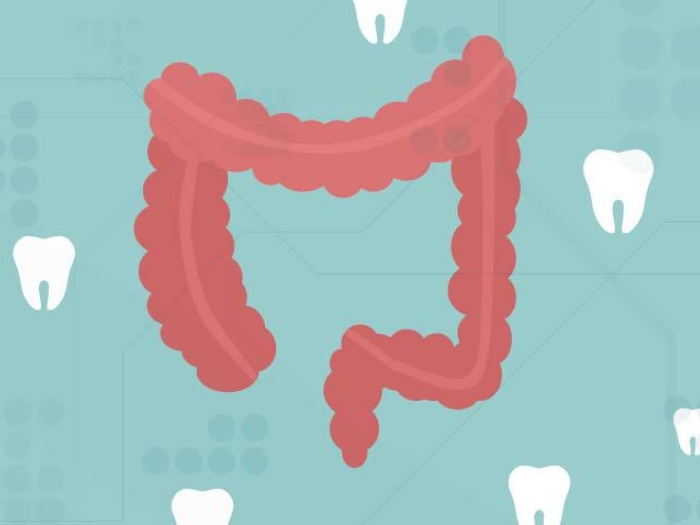Sulfur-producing bacteria identified as possibly causing Crohn’s symptoms, even in the absence of inflammation
9:02 AM
Author |

A study from University of Michigan researchers may provide an explanation for why some patients with Crohn’s disease continue to experience symptoms, even in the absence of inflammation.
The resulting paper, “Why Symptoms Linger in Quiescent Crohn’s Disease: Investigating the Impact of Sulfidogenic Microbes and Sulfur Metabolic Pathways,” appeared in Inflammatory Bowel Disease.
Even in cases of quiescent inflammatory bowel disease—i.e. without the presence of inflammation—nearly one-third of all patients report persistent symptoms.
The problem is especially common for patients with Crohn’s disease.
A previous study from the same team, published last year, looked at the microbiomes of patients with quiescent Crohn's disease who had persistent symptoms compared to those who didn't. In patients with continuing symptoms, they found a “significant enrichment” of sulfur-producing bacteria in the gut.
This latest study further established a potential link between persistent symptoms and sulfidogenic microbes and sulfur metabolic pathways by finding both were enriched in stool of patients with quiescent Crohn’s disease.
“This finding was interesting, not only because it corroborated our previous study,” said Allen Lee, M.D., M.S., assistant professor of internal medicine at U-M and co-senior author of the paper.
“We know that these sulfur-producing bacteria can produce hydrogen sulfide, which potentially has some negative effects on gut function.”
Hydrogen sulfide can affect intestinal permeability, or the function of the gut barrier that allows nutrients through while keeping toxins out (Loss of normal intestinal barrier function is sometimes referred to as “leaky gut.”)
Hydrogen sulfide can also lead to increased visceral hypersensitivity.
One initial theory on the cause of altered intestinal permeability among patients with quiescent Crohn’s disease was hard-to-detect subclinical inflammation.
However, symptoms persisted in patients who both did or did not have deep remission of their inflammatory bowel disease, leading researchers to look at the gut microbiome for alternate explanations.
This study found that in 39 patients with quiescent Crohn’s disease with symptoms, the fecal metabolome was “significantly different” compared to 274 quiescent Crohn’s disease patients without symptoms.
The persistence of symptoms with quiescent Crohn's disease remains a challenge for overall treatment of the condition.
While many patients try to reach remission for inflammation, the remaining symptoms have a major impact of quality of life.
The paper also notes that patients with persistent symptoms face higher medical costs and an increased risk of opioid use.
“We have observed this quality-of-life issue with our own patients,” Lee said.
“If you look at the symptom burden in our patients with quiescent Crohn's disease with persistent symptoms, it was actually very similar to patients who had active Crohn's disease.”
Future areas of research include an independent cohort study to confirm the link between sulfur-producing bacteria and quiescent Crohn’s disease.
The researchers have also begun a pilot study to determine the effects of a low-sulfur diet for Crohn’s disease patients with persistent symptoms.
Additional authors: Jonathan Golob, M.D., Ph.D., Krishna Rao, M.D., M.S., Jeffrey A Berinstein, M.D., M.Sc., Prashant Singh, M.D., William D Chey, M.D., Chung Owyang, M.D., Nobuhiko Kamada, Ph.D., Peter D R Higgins, M.D., Ph.D., M.Sc., Vincent Young, M.D., Ph.D. and Shrinivas Bishu, M.D.
Funding/disclosures: The results are in part based on data obtained from the IBD Plexus program of the Crohn’s & Colitis Foundation. The study was also supported by grants from The Leona M. and Harry B. Helmsley Charitable Trust (to A.A.L.) and the National Institutes of Health grants DK124567 and DK139095 (to A.A.L.); HS027431 (to K.R.); T32-DK062708, R01-DK125687, and R01-DK118154 (to P.D.H.R.); AI182787 (to V.B.Y.); and DK123403 (to S.B.)
Tech transfer(s)/Conflict(s) of interest: Allen Lee has consulted for GlaxoSmithKline and Atmo Biosciences.
Paper cited: “Why Symptoms Linger in Quiescent Crohn’s Disease: Investigating the Impact of Sulfidogenic Microbes and Sulfur Metabolic Pathways,” Inflammatory Bowel Diseases. DOI: 10.1093/ibd/izae238
Sign up for Health Lab newsletters today. Get medical tips from top experts and learn about new scientific discoveries every week.
Sign up for the Health Lab Podcast. Add us wherever you listen to your favorite shows.

Explore a variety of health care news & stories by visiting the Health Lab home page for more articles.

Department of Communication at Michigan Medicine

Assistant Professor


Want top health & research news weekly? Sign up for Health Lab’s newsletters today!




